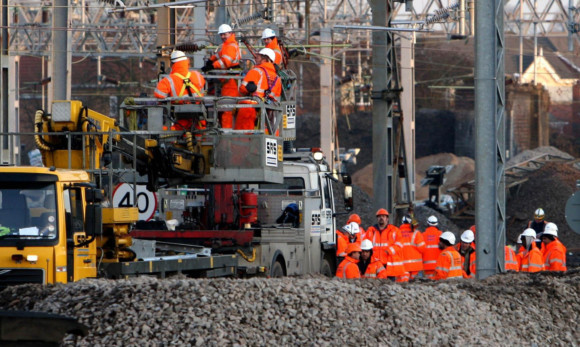Dundee recruiters were Scotland’s most successful when it came to getting people into work last month, according to latest statistics.
The Bank of Scotland’s monthly Report on Jobs revealed that the City of Discovery experienced the strongest rises in the number of permanent and temporary placements fulfilled last month.
A new instalment of the study, unveiled today, shows full-time placements continued to rise across the country, with salaries also rising at their fastest since May.
Engineering and construction were said to leading the charge, raising hopes for improved productivity in the depressed industries over the coming months.
Demand for temporary staff also rose during the month, BoS said, helping boost hourly pay.
Recruitment agencies cited improved market conditions for the increase in demand.
The composite Labour Market Barometer also continued to show improvement, rising 3.9 points above average in the month.
Though down from a 19-month high in December, the reading showed growth in Scotland remained higher than the equivalent index for the UK as a whole.
Bank of Scotland chief economist Donald MacRae said the measures signalled a continuing improvement in Scottish job market conditions.
“The number of people placed into permanent jobs remained strong, while vacancies for both permanent and temporary staff grew in the month,” he said.
“Demand for permanent staff was highest in engineering and construction, suggesting a modest pick-up in activity in this crucial sector in the coming spring.
“These results reinforce the hope that the Scottish economy enjoyed moderate growth in January 2013.”
Dundee-based consultancies also registered the strongest increase in hourly pay for temps, while Glasgow recruiters saw the biggest rises in permanent salaries.
As well as engineering and construction, last month saw rises in full-time vacancies in IT and computing, nursing and care, executive and professional roles and accounting and financial jobs.
The only industry sector to experience a reduction in part-time vacancies was catering and hospitality, with its marked rate of decline the sharpest since April.
The report and barometer use surveys of more than 100 recruitment and employment consultants to provide a standardised and seasonally-adjusted measure of the employment market related to staff demand, permanent placements, temporary billings, staff availability, salaries and average hourly rates.
